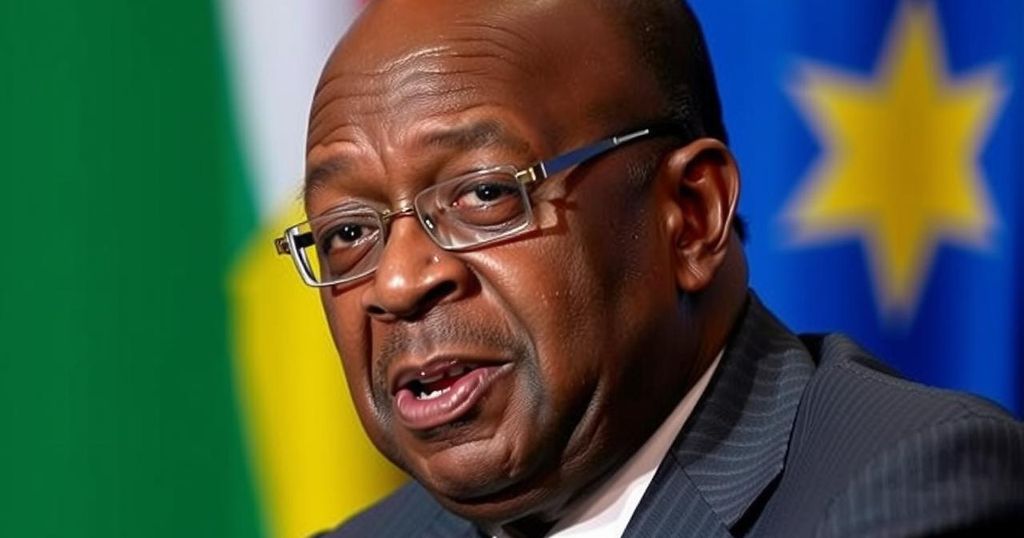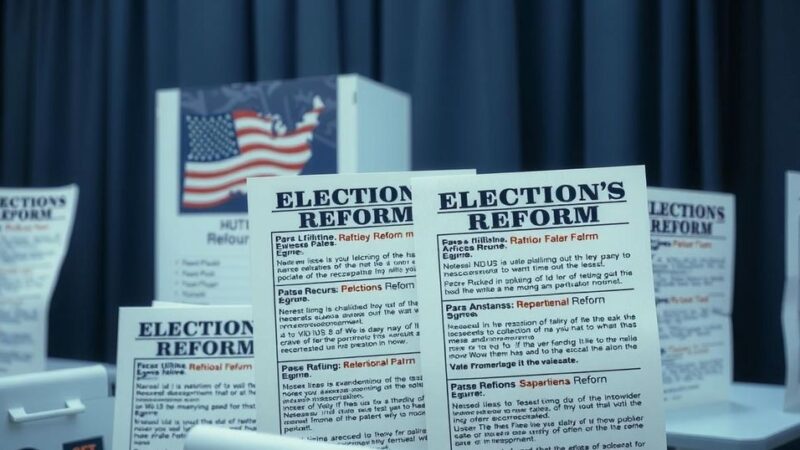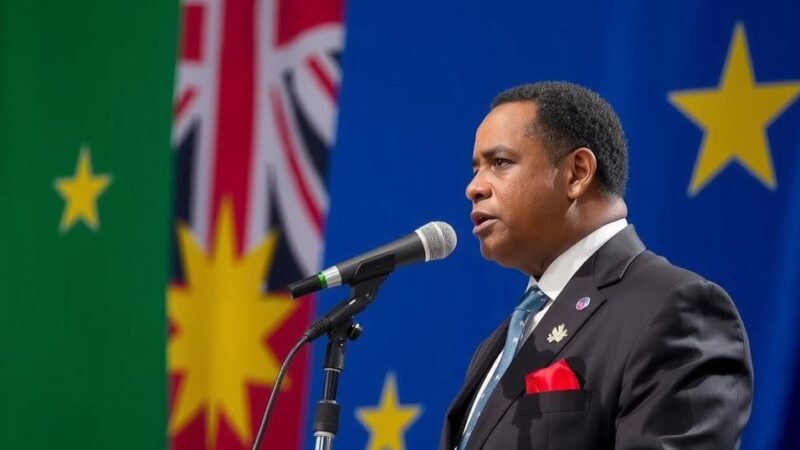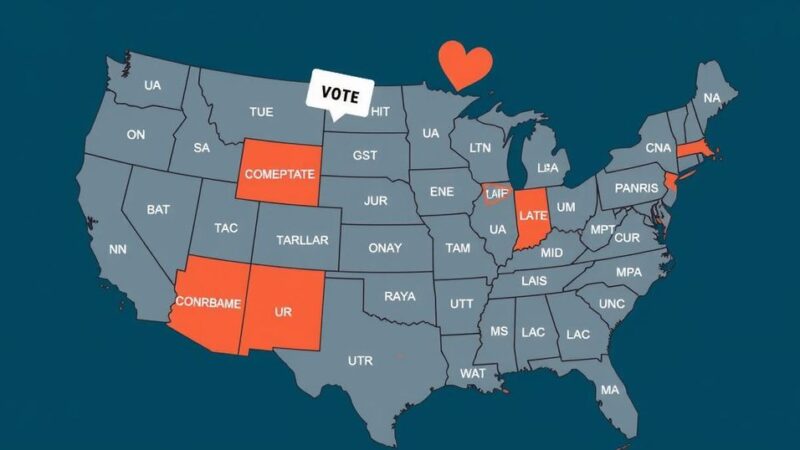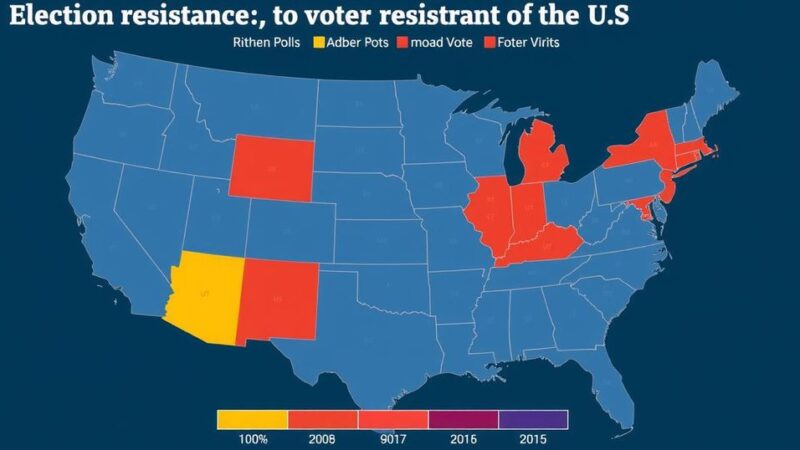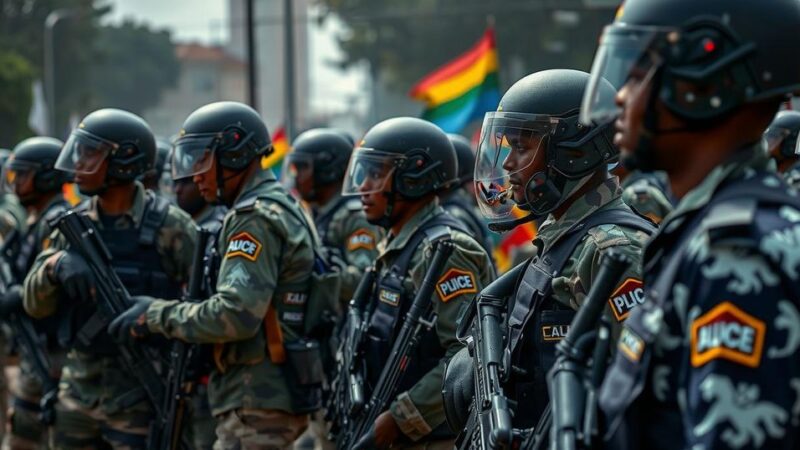Botswana’s President Mokgweetsi Eric Masisi has conceded defeat as his party, the Botswana Democratic Party (BDP), lost its parliamentary majority in recent elections. The opposition coalition, led by Duma Boko, won approximately two-thirds of the seats, marking a historic shift in Botswana’s political landscape after decades of BDP governance since independence in 1966. Masisi announced his acceptance of the loss and expressed readiness for a smooth transition.
In a significant political shift in Botswana, President Mokgweetsi Eric Masisi has acknowledged defeat following the parliamentary elections where his party, the Botswana Democratic Party (BDP), lost its majority. The BDP, which has governed since the nation’s independence in 1966, has only managed to secure two parliamentary seats as of early Friday morning. Meanwhile, the opposition coalition, led by Duma Boko of the Umbrella for Democratic Change (UDC), has achieved a substantial victory, garnering 40 out of 61 constituencies, thereby taking two-thirds of the seats. The Botswana Congress Party (BCP) claimed eight seats, while the Botswana Patriotic Front (BPF), supported by former President Ian Khama, obtained five. As the counting progressed, it became evident that multiple opposition parties had collectively surpassed the necessary threshold of 31 seats to form a government. Mr. Boko is anticipated to be appointed the next head of state when Parliament convenes to elect the new president. In a live broadcast via Botswana Television, President Masisi expressed his acceptance of the electoral outcome, stating that his party had experienced a “massive” loss. He further noted, “I will respectfully step aside and participate in a smooth transition process ahead of the inauguration. I had the most interesting presidency, the most challenging … I loved my job, and I’m prepared to leave it. Thank you. God bless.”. He also encouraged his supporters to unite behind the incoming government, emphasizing the importance of a seamless transition.
Botswana, known for its stable democratic governance since gaining independence in 1966, has recently experienced a seismic shift in its political landscape. The BDP has dominated the political scene for decades, facilitating a smooth transfer of power at electoral intervals. However, the recent parliamentary elections marked a pivotal moment as the party failed to maintain its majority. The new electoral dynamics suggest a potential change in governance with the rise of opposition coalitions, which reflects the evolving political sentiments among the electorate. Historically, political shifts in Botswana have been indicative of broader democratic principles and the citizens’ commitment to participating in the electoral process.
In conclusion, President Mokgweetsi Eric Masisi’s concession following the BDP’s substantial electoral defeat marks a historic turning point in Botswana’s political history. The rise of the opposition coalition led by Duma Boko signifies a potential transformation in governance, embodying the democratic ideals inherent in the nation’s political framework. This election not only challenges the long-standing dominance of the BDP but also highlights the shifting political dynamics and aspirations of the Botswana populace for representation.
Original Source: www.theeastafrican.co.ke
